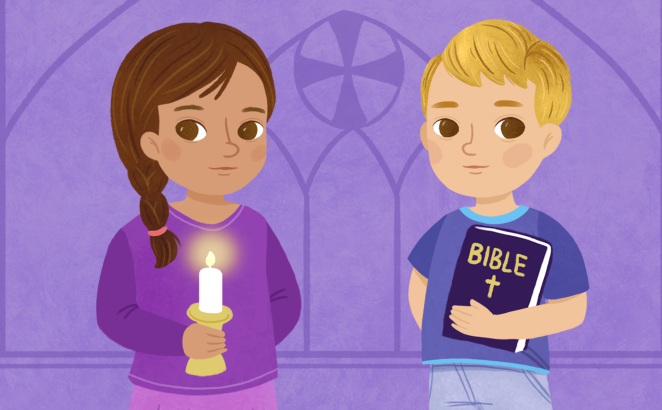Forgiveness can present a significant challenge in the life of a Christian.
Faith Formation
- READ MORE
- READ MORE
When prayers are not answered the way we want, how do I help my child understand?
- READ MORE
I need to spend more time on Bible study. Is there a best way to do that?
- READ MORE
Are children capable of taking on lead roles in our worship services, such as in reading Scripture, praying, blessing, or ushering? If so, how might we encourage this?
- READ MORE
Our church is doing more intergenerational ministry events. Don’t people learn best with their own age groups?
- READ MORE
Occasionally I cannot honestly sing all the words of a song. With “Amazing Grace,” for example, I would be lying if I sang “How precious did that grace appear the hour I first believed.” I did not have a Damascus Road experience. What should I do when I cannot honestly sing some lines in church?
- READ MORE
Do some methods cause us to multitask too many things? Do some of the things churches do during communion, such playing music, make it hard for us to meditate?
- READ MORE
A fellow church council member insists that having doubts about our faith is not something “real” believers would experience. It’s made me even more doubtful. What should I do?
- READ MORE
I’m in my mid-50s, and it feels like my faith and my interest in faith matters have stalled. What’s my problem?
- READ MORE
How should we read and find meaning in highly technical parts of the Bible, such as the laws presented in Leviticus or the censuses and lists of Numbers or 1 Chronicles?
- READ MORE
Many young families have enrolled their children in various sports programs, which are healthy but often conflict with Sunday church services. Consequently, we don’t see these families in church often. What can be done? How should the church handle this?
- READ MORE
In my 95 years of attending Christian Reformed churches, I have almost never heard a CRC pastor include an invitation to commit to Jesus or offer any follow-up for those who might be seeking. Why?
- READ MORE
Our children are visual learners, but so much in our worship and church programming is word-based. What's a parent to do?
- READ MORE
Our family has gotten into the habit of streaming worship rather than attending in person. As adults, we meet regularly with our small group, but what is the downside for our kids?
- READ MORE
My kids want to go to a youth group at another church with their friends. We don’t have time to be involved at this church and wonder if it is appropriate to hand our kids to another group.
- READ MORE
Who’s responsible for my faith growth?
- READ MORE
Leaders in many Christian churches are embracing Enneagram personality typing. I would be very glad to have solidly Reformed feedback on this practice.
- READ MORE
Our Reformed tradition emphasizes a lot of head knowledge when it comes to growing in our faith.
- READ MORE
Our church is filled with retired people. We don’t have many children. How can we minister to the children if there are so few of them?
- READ MORE
A family who has a son with special needs has recently begun attending our church. How do we help make this transition into our church programs good for this family?
- READ MORE
Doesn’t God grant us faith by grace? Why do we need to “form” faith?
- READ MORE
I’ve reached the third third of my life. What does faith formation look like after a life of going to church and being serious about my faith?
- READ MORE
My church expects parents to help in children’s worship once a month. Is that necessary? What do we gain and what do we lose?
- READ MORE
My small group is boring because people sit there but don’t participate. How do I get the members to engage?




